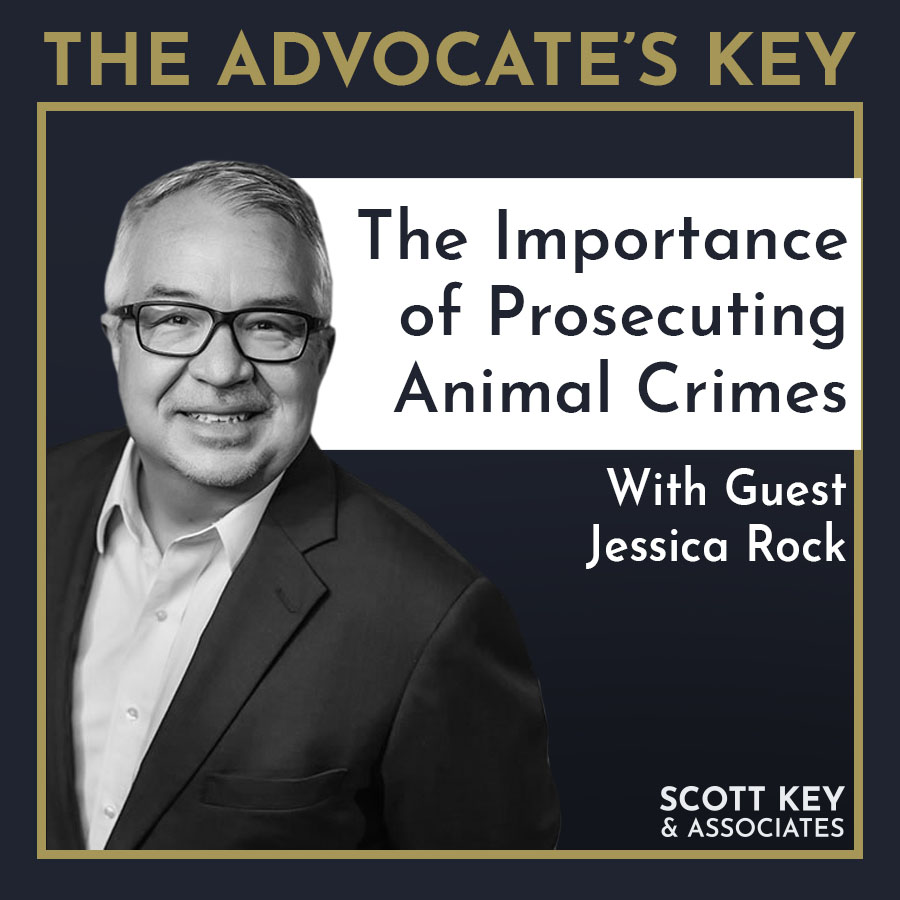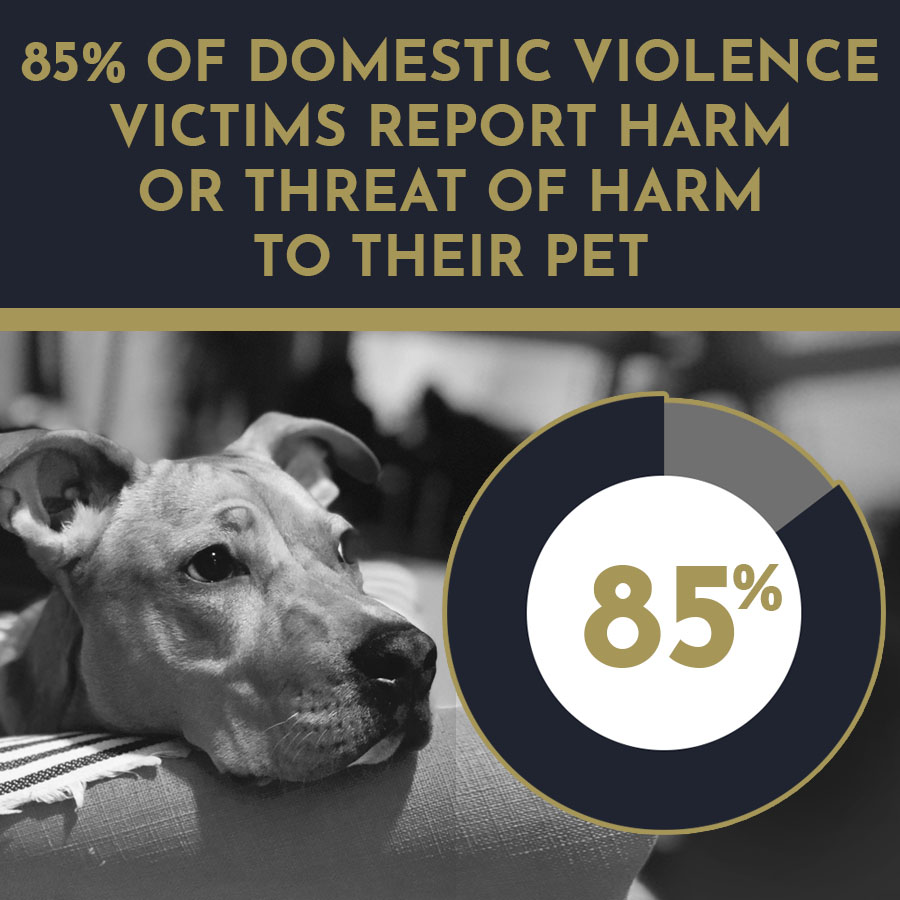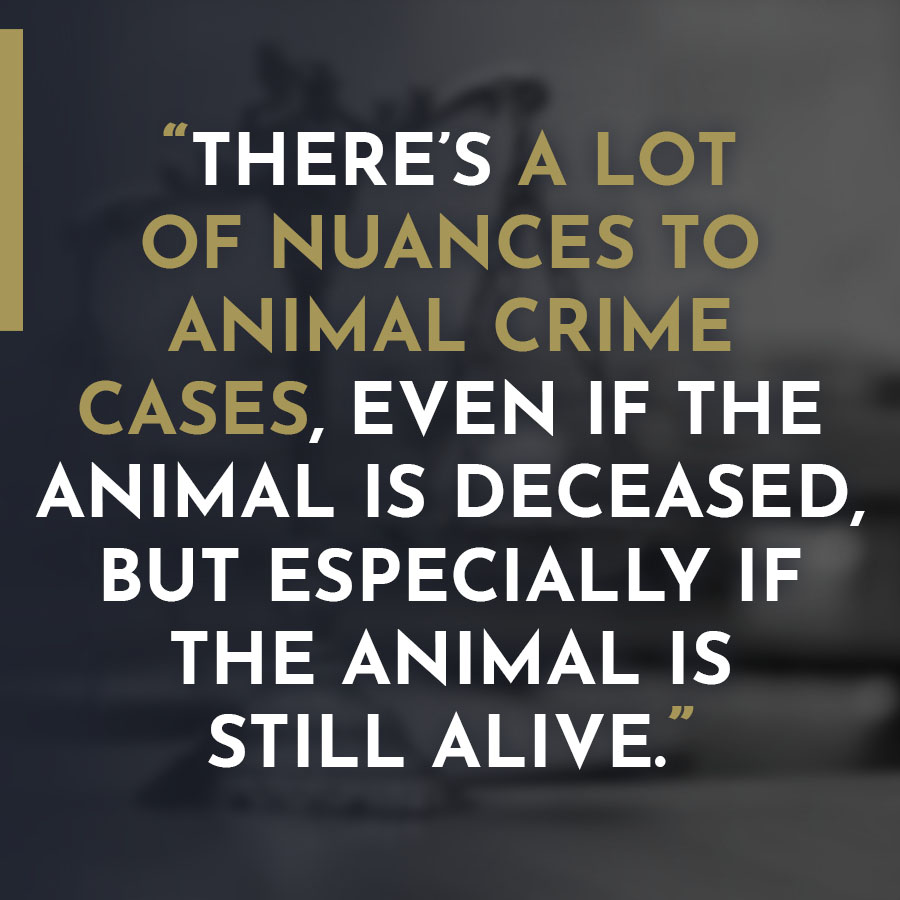The Importance of Prosecuting Animal Crimes with Jessica Rock
Georgia Statewide Animal Prosecutor Jessica Rock explains how understanding crimes against animals can help protect humans.
Lawyers and law enforcement can be hesitant to pursue legal action against animal crimes. In many communities where these crimes are taking place, there aren’t enough resources or education on prosecuting animal crimes.
“It’s about getting everyone educated on how the process works, who plays what role in the process and how we can all just do a better job in making sure our community is safe,” said Jessica Rock, Georgia’s one and only statewide animal prosecutor. “Not just for our animals, but for our human victims as well.”
A part of the animal prosecutorial unit, Rock dedicates every day not only to prosecuting animal crimes, but to educating other prosecutors and law enforcement on how to better identify and prepare to try animal crimes. In this episode, Scott and Rock break down what it takes to bring animal crimes to court and how pursuing crimes against animals can lead to protecting people.

The Connection Between Animal And Domestic Abuse
When Rock steps into training sessions with law enforcement, she generally finds one widespread misconception: animal crimes have nothing to do with human crime prevention. She quickly dispels this theory.
“I spend about a good hour and a half to two hours talking about the link to other crimes,” Rock explained. “I get their buy-in by explaining to them I’m not here to teach you how to be an animal crimes investigator. I’m here to help you with other types of human violence that you investigate.”

Animal crimes are more often than not very closely connected to violent human crimes like domestic violence or child abuse. Around 85% of domestic violence victims report harm or threat of harm to their pet.
“When we look at the type of perpetrator who is charged with domestic violence, there is a lot of times a certain mentality,” said Rock. “It has a lot to do with the desire and the need to gain power and control over vulnerable victims, including animals.”
It’s especially important to understand the link between human and animal violence because it can impact a victim’s ability to leave a violent situation. Only around 12% of shelters nationwide allow pets to accompany human victims.
“It can create barriers for victims escaping abusive situations because there’s no place to bring their pets,” Rock said. “So a lot of times, barriers to escape come from concern about the safety of the pet.”
In addition, other crimes against animals like dog-fighting or chicken-fighting are often accompanied by other types of violence. Gambling, drug use and homicidal behavior go hand in hand with animal fighting.
“Dog-fighting and chicken-fighting are happening on a rampant level in Georgia. People don’t realize how often it’s occurring,” Rock explained. “We’ve never raided a dog fight or chicken fight in my entire career where there hasn’t been guns or drugs.”
Bringing Animal Crimes To Court
There are barriers to bringing animal crimes to court. For one, many times animal abuse such as dog-fighting occurs in rural areas where it may be difficult to find the resources to take on a case involving many different animals.
That’s why Rock works to bring her knowledge and resources to all different parts of Georgia. She assists in drafting indictments, serves as an expert witness and provides law enforcement with what they need to investigate.

“There’s a lot of nuances to animal crime cases, even if the animal is deceased, but especially if the animal is still alive,” Rock said.
Search warrants, indictments and ownership surrenders are just a few parts of prosecuting an animal crime case that can be challenging without prior experience.
Getting the smaller details right can help your argument to the jury. Based on her years of experience, Rock teaches prosecutors everything from how to word their indictments without breeds to which parts of the law to present to jurors.
“It’s my job to make sure on the front end to say ‘Here’s all the issues you’re going to be dealing with and here’s how to navigate these issues’,” said Rock. “Let me know how I can help.”
To learn more about this show and to follow along with our journey, please rate, review and follow this podcast wherever you listen to your audio content including Apple Podcasts, Google Podcast, and Spotify.
